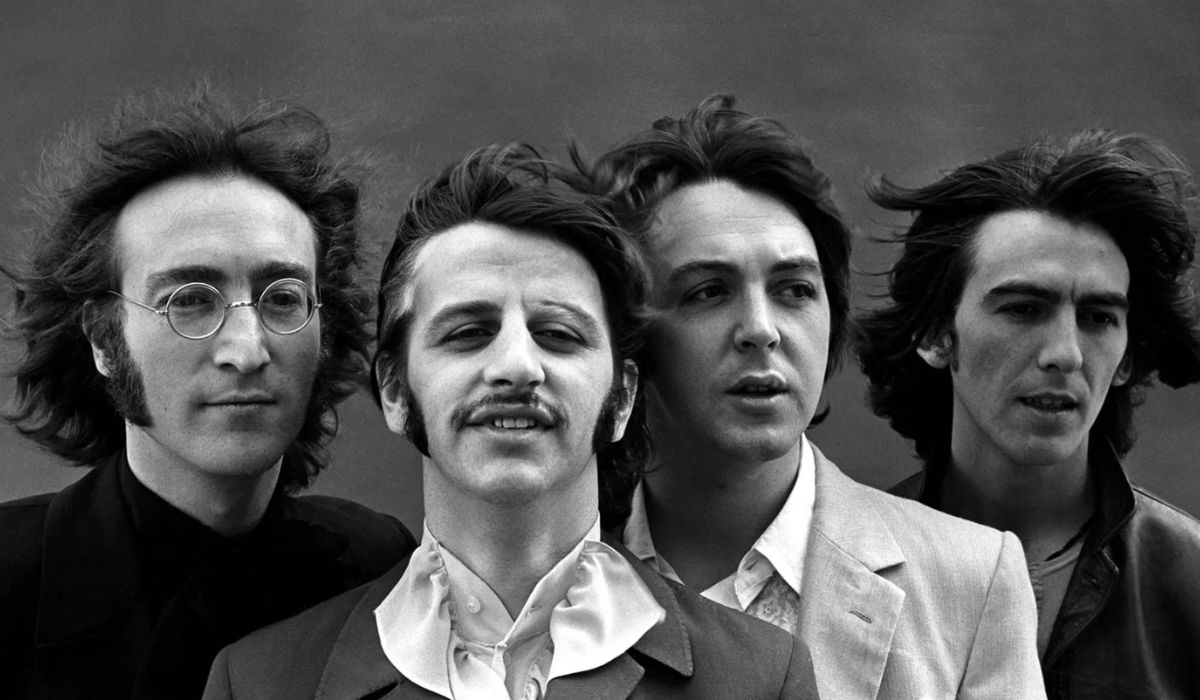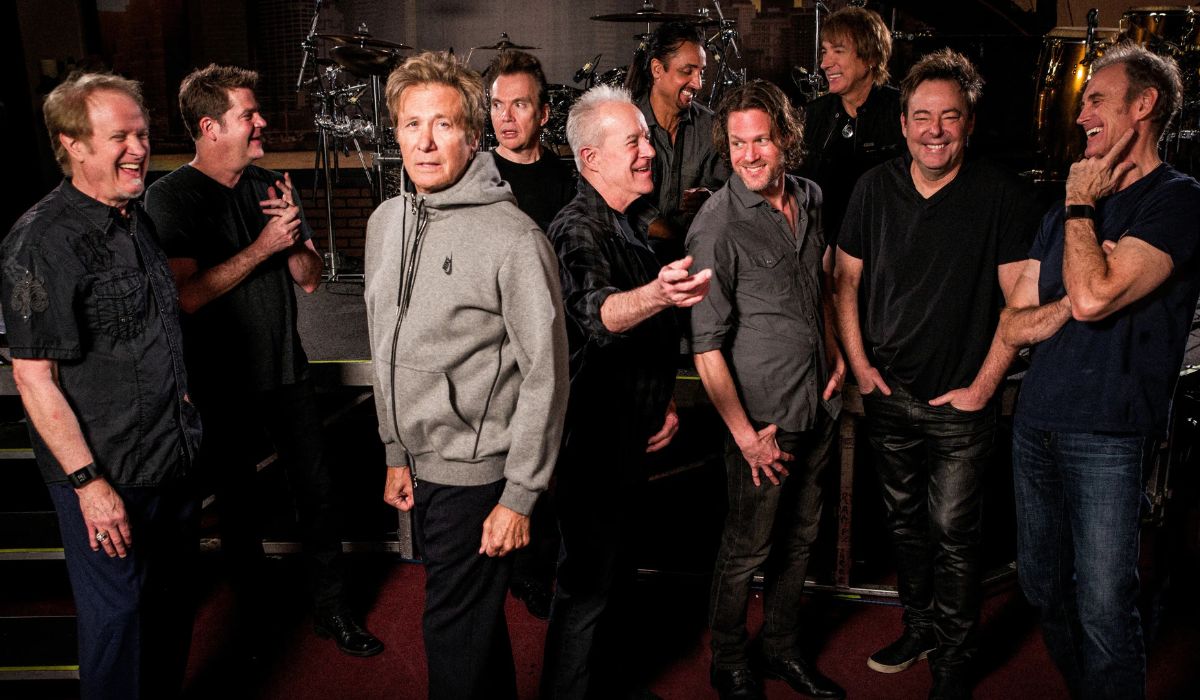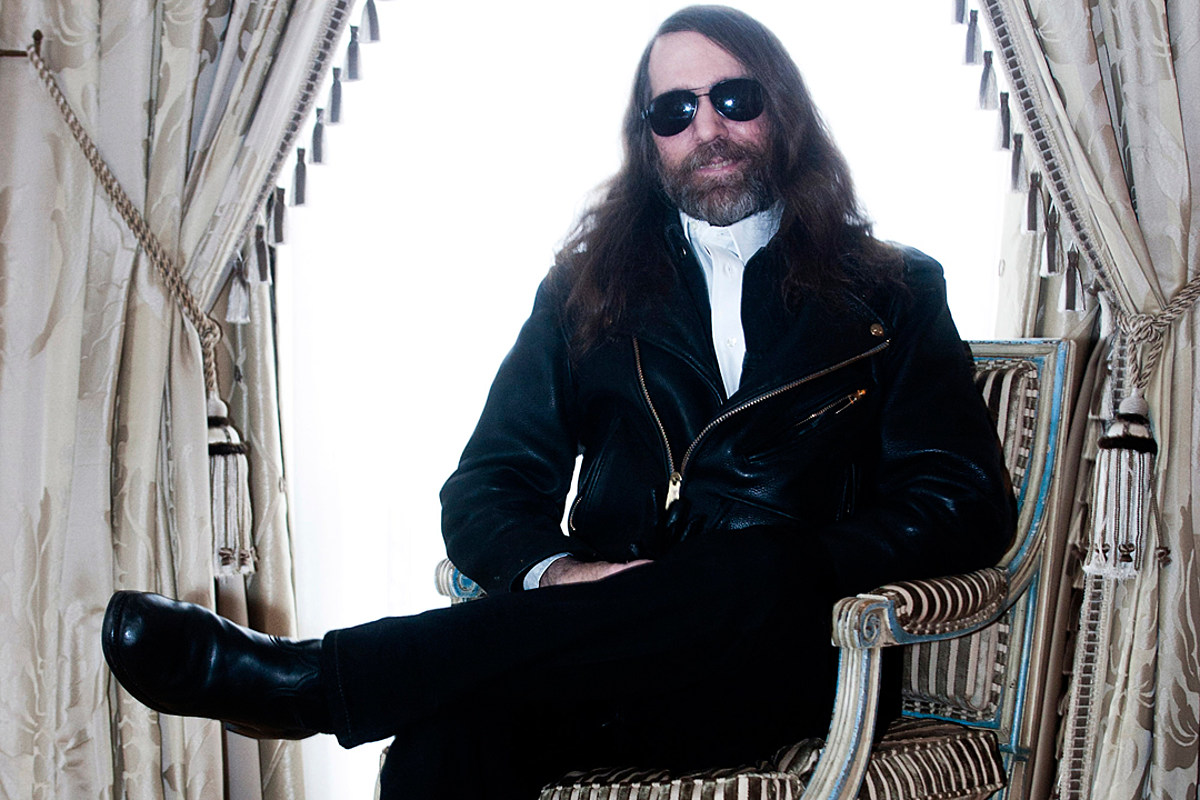Home>Instruments>Vocalist>Who Was The Lead Vocalist For The Beatles


Vocalist
Who Was The Lead Vocalist For The Beatles
Published: January 23, 2024
Discover who was the lead vocalist for The Beatles. Uncover the talented singer who captivated millions with his iconic voice.
(Many of the links in this article redirect to a specific reviewed product. Your purchase of these products through affiliate links helps to generate commission for AudioLover.com, at no extra cost. Learn more)
Table of Contents
Introduction
The Beatles are widely regarded as one of the most influential and iconic bands in the history of popular music. Their innovative songwriting, harmonies, and evolving musical style captivated audiences around the world. While all four members of the band played integral roles, it was the lead vocalist who often took center stage, delivering unforgettable performances and capturing the hearts of fans.
Throughout the band’s career, several members took on the role of lead vocalist, each bringing their unique style and vocal prowess to the table. From the melodic and soulful voice of Paul McCartney to the gritty and energetic performances of John Lennon, the Beatles’ lead vocalists played a significant role in shaping the band’s sound.
This article will delve into the different lead vocalists of the Beatles, highlighting their contributions, and exploring their impact on the band’s legacy. We will trace their journey from the early years to their rise to fame and the eventual decision to break up.
Additionally, we will explore the post-breakup careers of the Beatles’ lead vocalists and assess their individual legacies and influence on the music industry. By the end of this article, you will have a comprehensive understanding of the vocalists who played a pivotal role in defining the Beatles’ sound and ensuring their enduring legacy.
Early Years
The early years of the Beatles were marked by significant musical and personal growth. It all began in Liverpool, England, in the late 1950s, when John Lennon and Paul McCartney first crossed paths and formed a musical bond. Lennon and McCartney quickly discovered their shared passion for music and songwriting, and together they began honing their skills and crafting their own unique sound.
In these formative years, John Lennon took on the role of lead vocalist for the band. His distinctive voice and raw energy brought a dynamic quality to their performances. Meanwhile, Paul McCartney showcased his vocal talent as a harmonizing partner to Lennon, creating the iconic Beatles vocal harmonies that would become a hallmark of their sound.
As their musical abilities developed, Lennon and McCartney realized the importance of complementing their vocals with solid instrumental support. They were joined by George Harrison, a talented guitarist, and vocalist in his own right. Harrison’s intricate guitar work and occasional lead vocal performances added depth and dimension to the band’s evolving sound.
During this early phase, the Beatles also experimented with different drummers before ultimately settling on Ringo Starr, who became an integral part of the group. Ringo’s distinctive drumming style and backing vocals provided a solid foundation for their music.
Together, the quartet spent countless hours practicing, performing in local clubs, and refining their sound. Their passion and dedication paid off when they caught the attention of legendary music producer George Martin, who signed them to his label, Parlophone Records.
The early years of the Beatles laid the foundation for their future success and showcased their burgeoning vocal talents. As they worked on honing their individual voices and harmonizing together, they began to develop a musical chemistry that would captivate audiences on a global scale.
Formation of The Beatles
The Beatles officially formed in 1960, with John Lennon, Paul McCartney, George Harrison, and Stuart Sutcliffe as the original lineup. This formation came as a result of their shared passion for music and their desire to create something unique and groundbreaking.
The seeds of the Beatles were planted in Liverpool, where Lennon and McCartney first met and began playing music together. They soon became the core songwriting duo of the band, crafting melodies and lyrics that would resonate with audiences for years to come.
In their early days, the Beatles performed extensively in the local Liverpool music scene, playing in small clubs and honing their craft. Their raw talent and infectious energy quickly gained them a dedicated fan base, known as “Beatlemania.”
As they continued to grow as musicians and performers, the band felt the need for a stronger rhythm section. They recruited drummer Pete Best to add a solid beat to their sound. However, the lineup would undergo a significant change when Sutcliffe left the band and was replaced by Ringo Starr in 1962.
With the final addition of Starr, the classic lineup of the Beatles was complete. Lennon, McCartney, Harrison, and Starr would go on to become one of the most successful and influential bands of all time.
The formation of the Beatles marked the beginning of their remarkable journey, as they began to develop their distinctive sound and style. Each member brought their unique musical sensibilities and vocal prowess to the band, contributing to the overall blend and magic that came to define the Beatles’ music.
The collaboration and camaraderie within the group were instrumental in their success. Lennon and McCartney’s songwriting partnership, in particular, played a crucial role in shaping the Beatles’ catalog of timeless hits.
Together, the Beatles forged a path that would revolutionize popular music and leave an indelible mark on the music industry. They would go on to create an unprecedented cultural phenomenon and influence generations of musicians to come.
Rise to Fame
The rise of the Beatles from local Liverpool musicians to global superstars is a legendary tale in the history of music. Their journey to fame was marked by a series of transformative moments that propelled them to unprecedented heights.
One of the key turning points in the Beatles’ rise to fame was their breakthrough performance at the Cavern Club in Liverpool. Their energetic and electrifying live shows caught the attention of record executives and drew a growing fan base. The band’s popularity began to spread beyond Liverpool, gaining traction throughout the United Kingdom.
In 1962, the Beatles signed a record deal with EMI’s Parlophone label, which proved to be a pivotal moment in their career. Under the guidance of producer George Martin, the Beatles recorded their debut album, “Please Please Me,” which featured the chart-topping title track. The album’s success propelled them to national fame in the UK and set the stage for their rapid ascent.
As the Beatles’ popularity skyrocketed, they embarked on their first international tour to the United States in 1964. It was during this tour that the phenomenon of “Beatlemania” reached fever pitch. Their appearances on TV shows like “The Ed Sullivan Show” drew record-breaking viewership and sparked a frenzy among fans.
The Beatles’ infectious charm, captivating performances, and irresistible music completely captivated the American audience. The band’s signature harmonies, catchy melodies, and relatable lyrics struck a chord with listeners of all ages.
Building on the momentum of their US success, the Beatles continued to release groundbreaking albums that pushed the boundaries of popular music. Albums like “Rubber Soul,” “Revolver,” and “Sgt. Pepper’s Lonely Hearts Club Band” showcased their artistic growth and experimentation, cementing their status as musical innovators.
Throughout their meteoric rise, the Beatles maintained a relentless work ethic and a commitment to evolving their sound. They embraced new recording techniques and instruments, infusing their music with diverse influences from rock to folk to Indian classical music.
Their music constantly evolved, and each release was eagerly anticipated by their ever-growing fan base. Their ability to fuse catchy melodies with introspective lyrics and intricate arrangements set them apart from their contemporaries.
By the mid-1960s, the Beatles had become a cultural phenomenon on a global scale, selling out stadiums and arenas around the world. Their impact was not just limited to the music industry; their influence extended to fashion, culture, and social change.
The Beatles’ rise to fame was a remarkable journey that saw them transcend boundaries and touch the hearts of millions. Their enduring popularity and timeless music continue to captivate new generations, making them one of the most enduring and beloved bands in history.
Musical Contributions
The Beatles’ musical contributions are immeasurable, as they played an instrumental role in revolutionizing popular music during their time together. Each member brought their unique talents and influences to the table, creating a musical landscape that pushed boundaries and captivated audiences around the world.
At the forefront of the Beatles’ songwriting prowess were John Lennon and Paul McCartney. Their ability to craft timeless melodies and poignant lyrics set them apart from their contemporaries. Lennon’s introspective and sometimes whimsical songwriting style, coupled with McCartney’s melodic instincts and versatility, created a powerful blend of artistry that resonated deeply with listeners.
George Harrison, often overshadowed by Lennon and McCartney, also made significant musical contributions to the band. His intricate and innovative guitar work added depth and texture to their songs. Harrison showcased his songwriting talents on tracks like “Something” and “While My Guitar Gently Weeps,” which have become iconic Beatles compositions.
Ringo Starr’s drumming style was characterized by its tasteful simplicity and solid rhythm. While not known for his songwriting, Starr’s contributions as a vocalist and his distinctive drumming can be heard on songs like “Yellow Submarine” and “With a Little Help from My Friends.” His steady beat provided the backbone for the Beatles’ music, allowing their melodies to shine.
The Beatles’ musical exploration went beyond traditional rock and roll, embracing various genres such as folk, psychedelia, and Indian classical music. Albums like “Rubber Soul” and “Revolver” showcased their experimentation with different instruments, recording techniques, and unconventional song structures.
With albums like “Sgt. Pepper’s Lonely Hearts Club Band,” the Beatles pushed the boundaries of what was possible in the studio, creating a sonic landscape that was both innovative and groundbreaking. Their use of orchestration, tape loops, and studio effects revolutionized the recording process, setting new standards for creativity in popular music.
The vocal harmonies of the Beatles became an integral part of their sound, with Lennon, McCartney, and Harrison blending their voices in a seamless and magical way. From the beautiful harmonies on “This Boy” to the intricate vocal arrangements on “Eleanor Rigby,” their use of multiple voices added richness and depth to their songs, creating a signature sound that was instantly recognizable.
The Beatles’ musical contributions extended beyond their studio recordings. Their live performances were marked by electrifying energy and a genuine connection with their audience. They set new standards for live performances, experimenting with new stage setups and incorporating elements of theater into their shows.
Through their musical contributions, the Beatles inspired countless musicians and shaped the course of popular music for generations to come. Their innovative songwriting, stunning harmonies, and willingness to break boundaries continue to influence artists today, making them true pioneers of the musical landscape.
Personal Dynamics
The personal dynamics within the Beatles played a crucial role in the band’s success, but they were not always harmonious. Like any long-standing collaboration, the members of the Beatles had their fair share of disagreements and conflicts. These personal dynamics, however, ultimately contributed to the band’s unique chemistry and musical output.
John Lennon and Paul McCartney, as the primary songwriters and creative forces behind the band, had a complex relationship that evolved over the years. Their partnership was marked by a creative rivalry, with each pushing the other to new heights. They complemented each other’s strengths and weaknesses, often collaborating closely on songwriting and harmonizing together.
However, tension between Lennon and McCartney began to brew, particularly as they pursued their individual artistic ambitions. Disagreements over songwriting credits, creative direction, and the Beatles’ future led to strains within the band and ultimately contributed to their decision to break up.
George Harrison’s role within the band was also unique. Initially overshadowed by Lennon and McCartney, Harrison struggled to have his songs featured on Beatles albums. However, he persevered and ultimately emerged as a talented songwriter and guitarist in his own right. The personal dynamics within the band allowed Harrison’s voice to be heard, and his contributions added depth and diversity to the Beatles’ sound.
Ringo Starr, often seen as the peacekeeper within the band, maintained a harmonious relationship with his bandmates. His easygoing nature and affable personality helped to balance out any tensions that arose. Starr’s steady rhythm and understated vocals provided a solid foundation for the band’s music.
Beyond the music, the personal lives of the Beatles also played a significant role in shaping their dynamic. The pressures of fame and the constant scrutiny of the media took a toll on their personal relationships and contributed to internal tensions. The band members’ individual journeys, including marriages, artistic pursuits, and personal growth, added complexity to their shared experience.
Despite their differences and occasional conflicts, the personal dynamics within the Beatles were essential to their success. Their ability to navigate their relationships, both as friends and as creative collaborators, fueled their innovation and allowed them to produce some of the most memorable music of all time.
The unique chemistry forged by Lennon, McCartney, Harrison, and Starr set the stage for the Beatles’ unparalleled impact on popular music and culture. Their personal dynamics may have fluctuated over the years, but their shared passion for music and their collective desire to create something extraordinary ensured their enduring legacy.
Decision to Break Up
The decision to break up the Beatles in 1970 marked the end of an era and sent shockwaves through the music world. The decision was not abrupt, but the culmination of a series of factors that had been building within the band for some time.
Internal tensions and creative differences had been growing within the Beatles since their early years as a band. As their individual artistic pursuits and interests began to diverge, the shared vision that had propelled them to great heights started to falter.
One of the major contributing factors to the decision to break up was the departure of longtime manager Brian Epstein in 1967. Epstein had provided guidance and stability to the band, and his sudden death left a void that was difficult to fill. With the loss of Epstein, the Beatles were left to navigate the complexities of their career without the steady hand that had guided them.
Moreover, the personal relationships within the band had begun to strain. John Lennon, who had long been the driving force behind the Beatles, started to distance himself from the band and focus on his solo career with his wife, Yoko Ono. The presence of Ono during recording sessions further exacerbated tensions between the band members.
Paul McCartney, on the other hand, had become increasingly assertive in his desire to steer the band in a particular direction creatively. This clashed with the desires and visions of the other members, contributing to further division within the group.
Financial disagreements also played a role in the decision to break up. The Beatles’ business affairs had become increasingly complex and tangled, leading to disagreements over money and financial management. These disputes further strained the relationships between the band members.
The final straw came in 1969 during the recording sessions for what would become their last released album, “Abbey Road.” The album was fraught with tension and disagreements, with the band members working on separate tracks rather than collaborating as they had done in the past. The recording sessions were marked by a lack of unity and a growing sense of disillusionment.
In April 1970, Paul McCartney officially announced his departure from the band, effectively signaling the end of the Beatles. His announcement came shortly before the release of his solo album, “McCartney,” which further solidified the split.
The decision to break up was a difficult and painful one for the Beatles and their millions of fans worldwide. It marked the end of a musical phenomenon that had revolutionized popular music and left an indelible impact on the world. Despite the split, the individual members continued to create music in their respective solo careers, and the legacy of the Beatles remained a lasting testament to their unparalleled contributions to the music industry.
Post-Breakup Careers
Following the breakup of the Beatles in 1970, each member embarked on their own individual musical journeys, leaving an indelible mark on the music industry.
Paul McCartney enjoyed immediate success as a solo artist, forming the band Wings and releasing a string of hit albums. His songwriting prowess and melodic instincts continued to shine, earning him critical acclaim and commercial success. McCartney’s solo career produced iconic songs such as “Maybe I’m Amazed” and “Band on the Run,” solidifying his status as a musical legend.
John Lennon also ventured into a successful solo career, with his collaboration with Yoko Ono resulting in politically charged and emotionally raw music. Hits like “Imagine” and “Instant Karma!” showcased Lennon’s introspective songwriting and his unwavering commitment to activism and peace. Tragically, Lennon’s life was cut short in 1980, but his impact as a solo artist and as a member of the Beatles continues to reverberate.
George Harrison’s solo career saw him explore his spiritual side and delve into Eastern music influences. He released the critically acclaimed album “All Things Must Pass,” featuring the iconic hit “My Sweet Lord.” Harrison’s solo work showcased his remarkable guitar skills and his unique ability to blend diverse musical elements into a cohesive whole.
Ringo Starr pursued a successful solo career as well, releasing a string of albums that showcased his charm, wit, and knack for catchy melodies. He collaborated with musicians such as George Harrison and Elton John, further solidifying his status as a beloved artist. Starr also found success as an actor, starring in films such as “The Magic Christian” and “Caveman.”
While their individual careers soared, the members of the Beatles occasionally collaborated with one another. Most notably, they reunited for the now-iconic “Anthology” project in the 1990s, which included the release of new recordings and an accompanying documentary. This reunion served as a poignant reminder of their collective legacy and the enduring bond they shared.
Outside of their solo careers, the Beatles’ influence extended to the wider music scene. Countless artists have been inspired by their groundbreaking sound and innovative approach to songwriting. Their influence can be heard in the music of bands such as Oasis, Coldplay, and Radiohead, to name just a few.
The post-breakup careers of the Beatles members solidified them as individual musical forces, demonstrating their versatility, artistic growth, and lasting impact. Their contributions to music continue to inspire and resonate with listeners across generations, ensuring that the Beatles’ legacy remains an integral part of the fabric of popular music.
Legacy and Influence
The legacy of the Beatles is unparalleled in the history of music. Their impact and influence continue to reverberate across generations, shaping the landscape of popular music and leaving an indelible mark on the world.
The Beatles’ innovative songwriting, distinctive harmonies, and experimental approach to music set them apart from their contemporaries. They pushed the boundaries of popular music, infusing elements from various genres and incorporating new recording techniques. Their ability to seamlessly blend rock, pop, folk, and Indian classical music created a sound that was both groundbreaking and timeless.
With a discography that includes iconic albums such as “Sgt. Pepper’s Lonely Hearts Club Band,” “Revolver,” and “Abbey Road,” the Beatles created a body of work that has been consistently celebrated and emulated. Their songs, filled with poignant lyrics, ear-catching melodies, and memorable hooks, have become part of the cultural fabric, transcending generations and leaving an indelible impact on listeners.
The Beatles’ influence extends beyond their music alone. Their fashion choices, hairstyles, and overall image influenced popular culture and set new trends. They were pioneers in using music videos as a means of expression, with their groundbreaking films like “A Hard Day’s Night” and “Help!” paving the way for the music video revolution.
Furthermore, the Beatles’ social and cultural impact cannot be overstated. Their embrace of spirituality, peace activism, and countercultural values resonated with the youth of the 1960s and beyond. Their famous performance on the rooftop of Apple Corps headquarters in London, bringing their music to the streets, symbolized their connection with people and their desire to break down barriers.
Tributes to the Beatles and their music continue to abound. Their songs have been covered by countless artists across genres, reaffirming the timelessness and universality of their music. Their influence can be heard in the melodies and harmonies of contemporary artists, and their impact on the music industry as a whole continues to shape its evolution.
The Beatles’ induction into the Rock and Roll Hall of Fame, their countless awards and accolades, and their enduring popularity are a testament to the enduring legacy they have left behind. Their music remains relevant and cherished, continually inspiring new generations of musicians and fans.
The Beatles’ influence reaches far beyond their time together as a band, as their status as cultural icons and musical legends lives on. Their legacy is one of innovation, artistic excellence, and a shared belief in the power of music to bring people together. The Beatles will forever be remembered as one of the greatest and most influential bands in the history of music.
Conclusion
The Beatles, with their immense talent, creativity, and groundbreaking musical contributions, have left an indelible mark on the world of music. Their journey from a small Liverpool band to global superstars is a testament to their extraordinary abilities and unwavering commitment to their craft.
With their infectious melodies, vibrant harmonies, and innovative songwriting, the Beatles revolutionized popular music. Their ability to seamlessly blend genres, experiment with new sounds, and push the boundaries of artistic expression made them true pioneers in the industry.
The personal dynamics within the band, though occasionally fraught with tension, gave rise to a chemistry that was unparalleled. The unique combination of John Lennon’s raw energy, Paul McCartney’s melodic genius, George Harrison’s spiritual depth, and Ringo Starr’s steady rhythm created a musical synergy that captivated the world.
While their decision to break up in 1970 saddened many fans, the members of the Beatles went on to forge successful solo careers, continuing to inspire and influence generations of musicians. Their individual talents and artistic pursuits showcased the depth and range of their abilities, solidifying their status as musical legends.
The Beatles’ legacy and influence transcend time and continue to shape the fabric of popular music. Their songs resonate with listeners of all ages, and their impact on the industry can be seen in the countless artists who have drawn inspiration from their groundbreaking sound.
Moreover, the Beatles’ impact extends beyond music alone. Their cultural significance, their advocacy for peace and love, and their ability to bring people together through their music have left an indelible mark on society as a whole. They represent an era of social change, artistic innovation, and the power of unity.
In conclusion, the Beatles are more than just a band – they are a phenomenon. Their enduring popularity, their timeless music, and their artistic legacy continue to captivate and resonate with audiences around the world. Their influence will continue to shape the future of music, ensuring that the Beatles’ unparalleled contributions will be cherished for generations to come.











